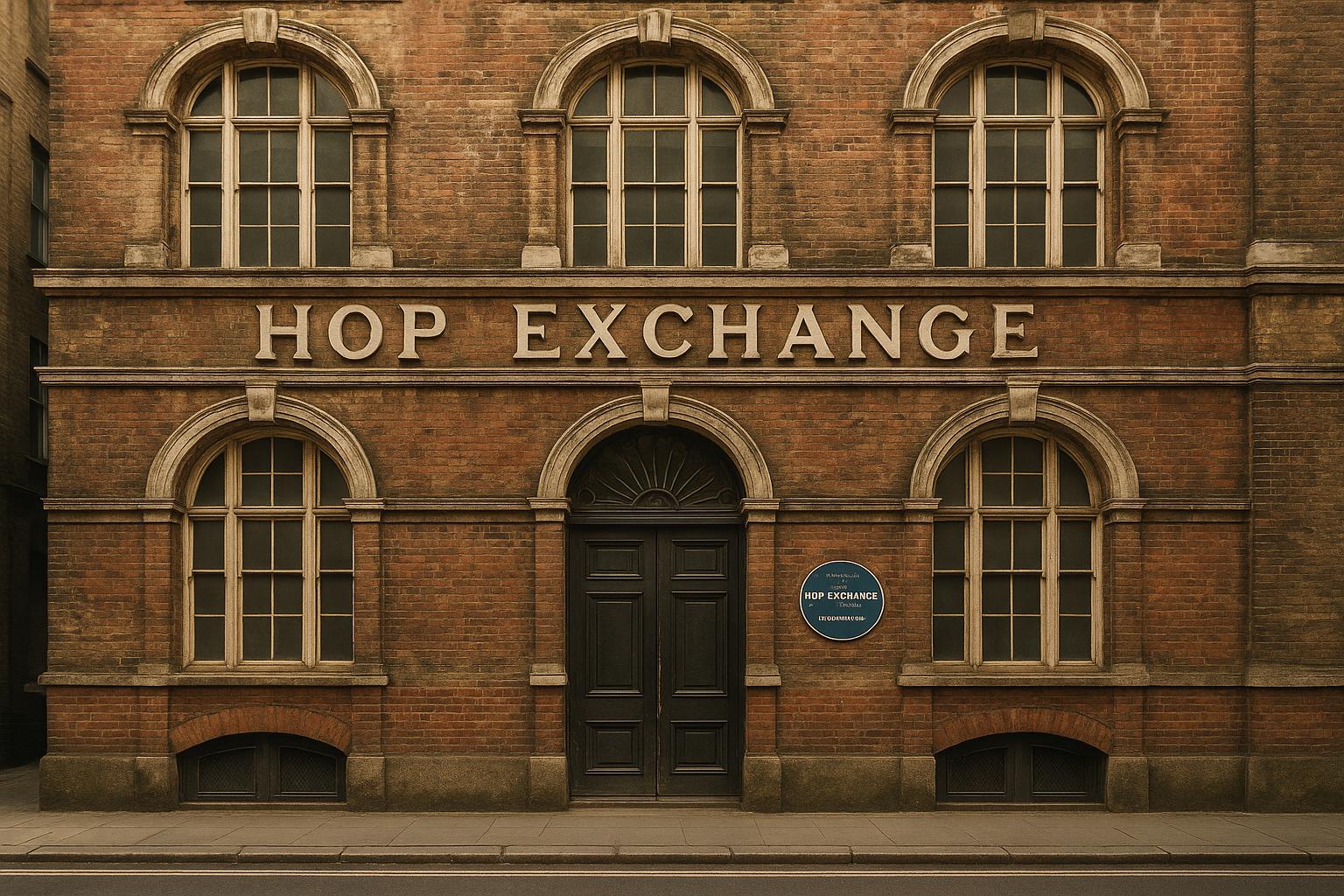Dishoom, the renowned Indian restaurant chain, is planning to open a new location in Central London within a historic but "underappreciated" building near Borough Market. The proposed site is The Hop Exchange, a Grade II listed building on Southwark Street, notable for its heritage as a hub for hop trading in the brewing industry since 1867. Although nominated for the blue plaque scheme in 2004, the building was not awarded one, underscoring its relatively overlooked status despite its architectural and historical significance.
According to planning documents submitted by Dishoom, the restaurant aims to revitalise the western area of The Hop Exchange while integrating the space more closely with Borough Market. The company emphasises that the area around the market is globally recognised for alfresco dining beneath striking industrial architecture and that its arrival will enrich this atmosphere further. The plan includes external dining, which will establish a new pedestrian connection via Park Street. Recognising potential concerns from local residents about noise, Dishoom has committed to conducting a noise impact assessment to mitigate disturbance.
The proposed development will preserve The Hop Exchange's special architectural interest, although it will involve some minor modifications to connect different rooms within the building. Dishoom argues these changes are necessary to ensure the building's long-term use and vitality, balancing heritage preservation with functional adaptation. The restaurant will offer seating for 296 patrons, including 44 outside, and employ between 52 and 62 staff working in shifts. Operating hours are planned from 8am to 11pm Monday through Thursday, extending to midnight on Fridays and Saturdays, and closing at 11pm on Sundays. The opening is anticipated by late 2026, subject to the planning committee's approval.
This new central London site will be the twelfth Dishoom restaurant nationwide and seventh within London. The company currently operates venues across the capital in Covent Garden, Kensington, Shoreditch, Canary Wharf, King’s Cross, Carnaby, and Battersea. Beyond London, Dishoom has establishments in Birmingham, Manchester, Edinburgh, and Glasgow, alongside a concept known as ‘Permit Rooms’ , all-day bar cafés focusing on sharing plates and drinks rather than full meals. These ‘Permit Rooms’ exist in Brighton, Cambridge, Oxford, and soon in Notting Hill, where a new venue is planned to open in Spring 2025. The latter will be Dishoom's first ‘Permit Room’ in London, focusing on cocktails and a more casual dining setting.
The brand is also expanding its footprint into new cities outside London, with a first-ever Dishoom ‘Permit Room’ slated to open in Liverpool on Dale Street. This continues Dishoom's broader growth strategy as it transitions the distinct Bombay Irani café experience into more parts of the UK. The company’s site at Battersea, near the iconic power station, opened recently, marking its first restaurant in south London with a capacity of 235 covers and features nostalgic 1950s Bombay décor combined with modern elements.
Dishoom’s expansion highlights a keen blend of culinary innovation and heritage conservation, as it converts special venues to enhance their cultural and social relevance while growing the brand's presence. The Hop Exchange project in particular exemplifies this approach, as Dishoom seeks to honour and revitalise a significant but somewhat overlooked piece of London’s architectural history, offering residents and visitors a unique dining experience steeped in both heritage and vibrant modernity.
📌 Reference Map:
- [1] (MyLondon) - Paragraphs 1, 2, 3, 4, 5
- [2] (Evening Standard) - Paragraph 7
- [3] (Time Out) - Paragraph 7
- [4] (Time Out) - Paragraph 8
- [5] (The Caterer) - Paragraph 9
- [6] (Time Out) - Paragraph 9
- [7] (Dishoom Website) - Paragraphs 6, 7, 8, 9
Source: Noah Wire Services
